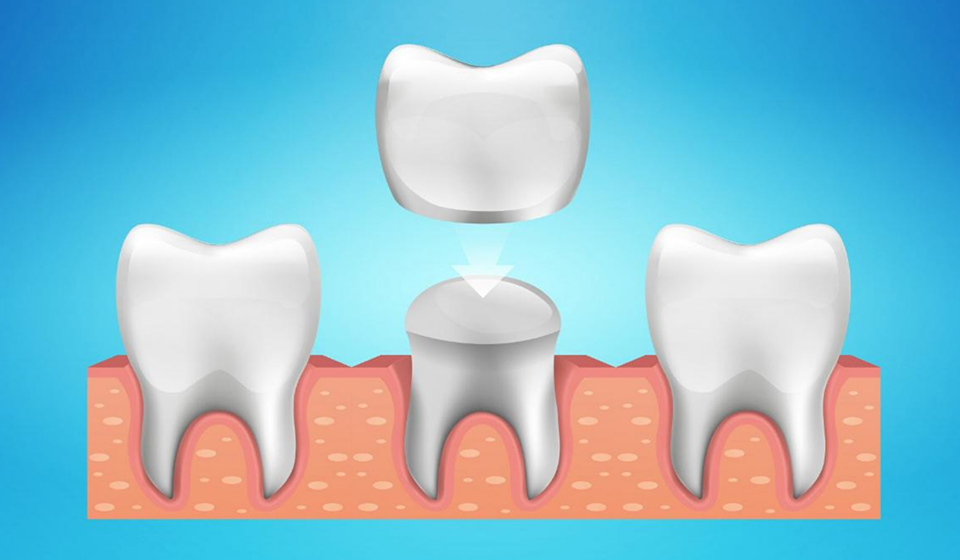Dental crowns are one of the most versatile and effective treatments for restoring damaged teeth. These protective caps not only enhance the appearance of teeth but also strengthen them, making them a practical solution for anyone dealing with tooth decay, cracks, or extensive damage. If you’re considering dental crowns in Houston, understanding how they work, their benefits, and why they are such a long-term solution can help you make an informed decision about your oral health.
What Are Dental Crowns?
Dental crowns, often called “caps,” are custom-made coverings that fit over a tooth, restoring its shape, size, strength, and appearance. Crowns are typically crafted from durable materials like porcelain, ceramic, metal, or resin, designed to mimic the natural look of a tooth while providing long-lasting support. Crowns are cemented into place, fully covering the visible portion of the tooth above the gum line.
The Benefits of Dental Crowns for Damaged Teeth
- Protection and Durability
Dental crowns offer excellent protection for compromised teeth. Teeth that are fractured, heavily filled, or weakened by decay are prone to further damage without added support. Crowns act as a shield, distributing the forces of biting and chewing more evenly and preventing cracks or fractures from worsening. With proper care, crowns can last 10 to 15 years or even longer, making them a long-term investment in your oral health.
- Natural Appearance and Improved Confidence
Modern crowns are often made from materials that closely mimic the natural appearance of teeth, such as porcelain or ceramic. These materials can be customized to match the shade and shape of your other teeth, giving you a seamless smile. This cosmetic benefit is particularly helpful for people who want to restore a tooth that is visible when they smile or talk.
- Restored Function and Comfort
A damaged tooth can affect your ability to chew properly, leading to discomfort or even further dental issues if left untreated. By restoring a tooth’s full structure and function, a dental crown allows you to bite and chew comfortably. This improved function helps prevent other problems, like jaw pain and uneven wear on adjacent teeth, that can occur when you compensate for a damaged tooth by chewing on one side of your mouth.
- Prevention of Tooth Loss
A damaged or decayed tooth left untreated can eventually become unsalvageable, requiring extraction. Once a tooth is lost, you may experience other oral health issues, such as shifting of surrounding teeth and bone loss in the jaw. A crown not only strengthens and protects the tooth, preventing further decay or damage, but it also helps you retain the natural tooth structure. th and promotes better long-term oral health.
The Step-by-Step Process of Getting a Dental Crown
Receiving a dental crown usually requires two visits to your dentist.
First Visit: Preparation and Impressions
- Examining the Tooth: Your dentist will first examine the damaged tooth to determine if a crown is the best option for restoration. X-rays may be taken to assess the tooth’s roots and surrounding bone.
- Preparing the Tooth: To make room for the crown, your dentist will reshape the tooth by filing down the enamel. In cases where a significant portion of the tooth is missing, your dentist may build up the tooth with filling material to support the crown.
- Taking Impressions: Once the tooth is shaped, an impression will be taken of the reshaped tooth and the surrounding teeth. This impression is sent to a dental laboratory where your custom crown will be fabricated. It usually takes about two weeks to create the crown.
- Temporary Crown Placement: In the meantime, your dentist will place a temporary crown to protect your tooth while you wait for the permanent one.
Second Visit: Fitting and Cementing the Crown
- Removing the Temporary Crown: When your permanent crown is ready, you’ll return to the dentist, who will remove the temporary crown and clean the tooth.
- Checking the Fit and Appearance: The dentist will carefully place the new crown over your tooth to ensure a comfortable fit and check that it matches the color and appearance of your surrounding teeth.
- Cementing the Crown: Once everything looks perfect, the dentist will cement the crown in place, ensuring it is firmly seated. After a final check for comfort and proper alignment, your new crown will be ready for daily use.
Are Dental Crowns Right for You?
If you have a damaged or weakened tooth, consulting with your dentist is the first step in determining if a crown is the best option for restoration. Your dentist will assess your tooth’s condition, discuss your goals, and help you understand the benefits of a crown compared to other treatment options.
Conclusion: Trust Unident Family Dentistry in Houston for Quality Dental Crowns
Dental crowns are a long-lasting solution for those needing restoration and protection for damaged teeth. Their versatility, durability, and natural appearance make them one of the most popular treatments for preserving a tooth’s structure and function. If you’re looking for experienced professionals to handle dental crowns in Houston, the team at Unident Family Dentistry in Houston is here to help. With personalized care and advanced techniques, Unident Family Dentistry is committed to providing high-quality dental solutions that keep your smile healthy an






